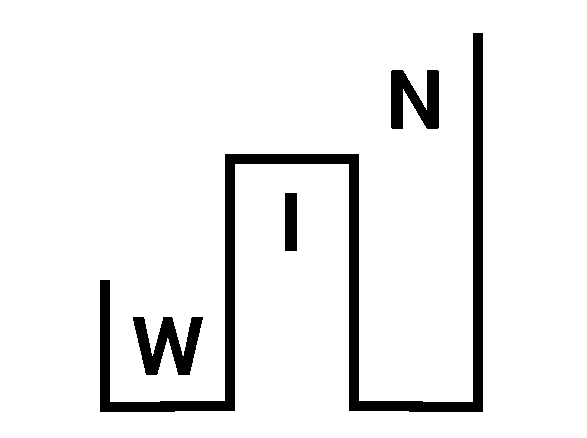Namrata Kamdar
Founder, Plenaire
Namrata Kamdar, is an experienced Brand Developer with over 18 years of experience in managing, developing and growing personal care/beauty brands and businesses globally.
She has worked for a number of larger FMCG companies including PEPSI, Coke and Unilever. Whilst at Unilever she led the complete development of Baby Dove as well as the brand redeployment of Lakme Skin Care and Color cosmetics in India circa 2005. Prior to her current role, Namrata was Skincare innovation and Digital Director at Lumene, a boutique Finnish beauty brand, and a Unilever Ventures portfolio company. During her time there, she revamped its skincare portfolio and oversaw the launch of Lumene.com.
Her work experience covers a diverse set of product categories with a focus on female consumers, however over the past 10 years she has focussed on product development and design within personal care and beauty. Passionate about Design, Beauty and Trends, Namrata’s other areas of expertise are Digital UX and understanding multicultural audiences. She is also Founder and CEO at Shalohm, working to co-develop and invest with early stage entrepreneurs within digital, wellness and beauty sectors. Namrata serves on the boards of several companies, including Kamdar Private Limited and Vidya Cathedral Education Trust.
After managing, developing and growing global brands and businesses globally, she decided to create Plenaire - a community based beauty brand for Gen Z. Plenaire was launched on September 2nd, 2019 at a press event at Spring in Somerset House, London. Plenaire partnered exclusively with Liberty to introduce its debut collection and is currently stocked at a number of Europe’s finest beauty retailers as well as cultbeauty.com. Its first set of products Plenaire Tripler 3in1 Exfoliating Clay and Rose Jelly Makeup Remover have achieved a cult under-the-radar following amongst beauty editors, influencers and consumers looking for products with cleaner ingredients and more sustainable packaging. Plenaire has been called “The white T-shirt of the beauty industry - its not fussy or frilly but is super reliable and can be accessorized” (Byrdie Beauty).
Namrata holds an MBA from The McCombs School of Business at the University of Texas at Austin, specialising in Global Business Management and Consumer Behaviour. She lives in Fulham with her husband and two children.
Leadership Values
Values
Democracy
Trust
Psychological Safety
Vulnerability
Humility
A Sense of Humour
LinkedIn
What are the key milestones on your path to leadership?
Anxiety is worrying about the future, depression is regretting the past and if you’re happy in the moment, that’s peace. I worked for other people for most of my life. At 39, after having my second child, I was diagnosed with depressive illness and work related stress. I knew it was time to make a big change.
As far as leadership goes, major milestones :
Overcoming my own negative thinking. Ruminating about the past and catastrophizing about the future made me mentally unwell. There was something about the corporate environment that was triggering for me - it's very personal and it's not to say what is right for me is right for everyone at all. Mental health is never, ever a result of the environment you are in alone, though the environment can certainly be the trigger. It's really more to do with your reaction to an environment. I do look back and wonder just how much time I spent catastrophizing, thinking up negative scenarios in my mind. The key was to figure out how to coach my brain to be present through learned techniques. By focusing on my breathing and appreciating the present moment. Now I have better awareness of the triggers of when I am stressed from external factors. I really just pause, listen to my body and manage emotions very differently.
Staying true to my own values. A lot of second guessing each other that is sometimes part of typical big company culture as well took its toll. I struggled deeply with finding accessible and modern models of leadership. While collaboration is held up like a shiny object, my own experience was that politics of big organisations make it harder in principle, even with the best intentions. I knew I had made the right choice when I left because I felt free for the first time. I just was never going to be the person that wanted to fit in, perhaps I was when I started out, but I grew out of it. I suppose I had grown in a way that I was looking for more independence, and the ability to assert my own creativity, a license to build from a blank canvas. It felt right.
Developing resilience and mental strength. I learned that I needed to invest in myself and decide to re-learn and focus on what could be holding me back, including my own negative thought patterns. Investing in my own mental health and learning practical techniques have been invaluable. Now, when faced with challenges or someone's lack of belief, I perhaps react quite differently. I generally take a step back, I try to pause, to become the watcher/observer. I step outside of what I need to do so I’m not feeling the emotions, the stress of whatever the circumstance brings. If I hadn’t learnt that technique via CBT (Cognitive Behavioural Therapy) I would be “in it” and perhaps be unable to manage my emotions in different ways.

